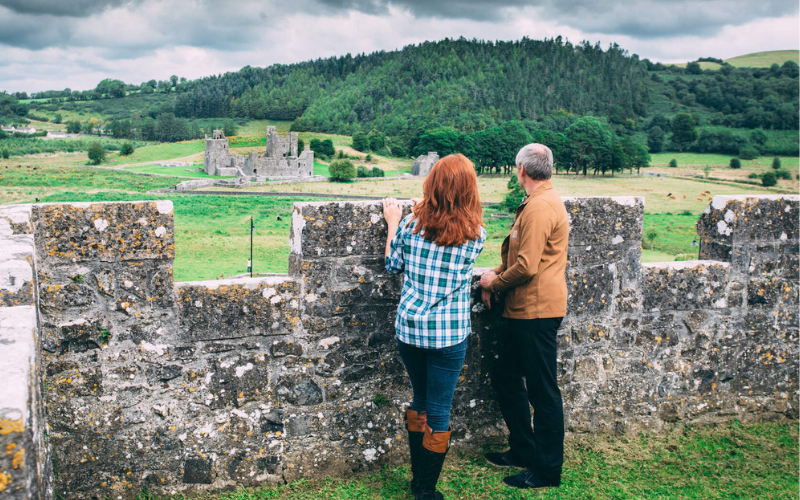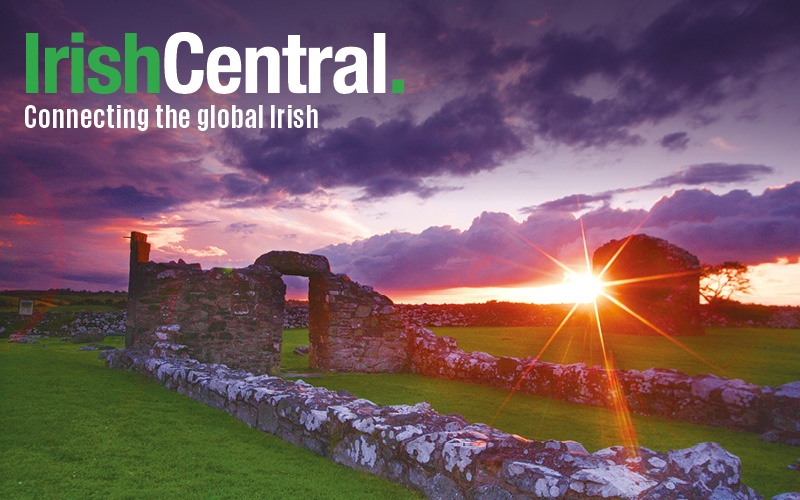Coming soon to a theater near you - familiar, even stereotypical, Irish American characters! Are these characters harsh but necessary explorations of the Irish American experience? Or cheap exploitations of paranoia about the Irish? Are the Irish in America symbols of hope or fear? You decide! The buzz is already swirling around "Milk," the biographical film starring Sean Penn. Penn portrays Harvey Milk, a San Francisco politician who became the first openly gay executive official in the U.S., and was later murdered. As Maureen Dowd noted in The New York Times this week, "Milk" chronicles "the rancorous California fight of gay activists against church-backed forces in the seventies to prevent discrimination against gays." In the end, as Dowd puts it, Harvey Milk "was gunned down by Dan White ... an Irish Catholic former policeman and Vietnam vet (who) opposed Milk's equal rights initiatives for gays. He resigned and immediately wanted his seat back, a move Milk helped persuade the mayor, George Moscone, to reject. White climbed through a City Hall basement window with a loaded gun and shot down Moscone and then Milk." Another TV report about "Milk" referred to White as "a child of San Francisco's conservative, Irish Catholic core." It's tempting to ask if White's background would be mentioned if he were, say, Jewish or Methodist or Hindu. But, ultimately, there is relevance in White's background. Part of the Harvey Milk saga was the ongoing broader culture war between those who wanted to expand rights for minorities and those who were threatened, offended or theologically opposed to that expansion. For better or worse, Irish Americans have often fallen on the latter side of that struggle, whether we are talking about fiction or real life. Consider the murderous lynchings of the New York Draft Riots of the 1860s, the nasty Irish toughs depicted in the 1930s novels of James T. Farrell, or the angry South Boston parents opposed to bussing in seventies Boston. White sounds as if he fits right into this uncomfortable tradition - reactionary, violent, a sinner in the name of religion. But are these actually common problems among Irish Catholics? Or merely the kind of backward-thinking Irish Catholics enlightened people like to disapprove of? We can all agree there is an element of truth in a character such as Dan White. He is, after all, a real life character. But by so heavily emphasizing the "Irish Catholic" aspect of his identity, are pundits and commentators simply saying, "Well, what do you expect from those people?" Okay, that's a heavy way to look at it. But we also have a movie coming out about a priest named Father Brendan Flynn who is accused of abusing a boy. That is the conflict at the center of "Doubt," starring Meryl Streep and Philip Seymour Hoffman as the aforementioned Irish priest. The abusive Irish Catholic priest is another familiar character, a Dan White in a collar, a religious sinner, unable to comprehend how or why the world around him is changing. So closely linked to clerical abuse are the Irish in America that journalist John Rigert published a book this year called "An Irish Tragedy: How Sex Abuse by Irish Priests Helped Cripple the Catholic Church" (Crossland Press). The wrinkle here is that Father Flynn may, in fact, be the victim in "Doubt," a man of the future rather than the past. Similarly, when it comes to "Milk," it is Irish Catholics such as Maureen Dowd - and current San Francisco mayor Gavin Newsom - who are speaking out for gay rights. Newsom recently told USA Today, "I'm the least likely person to be pushing (gay rights), raised by nuns and priests, being from an Irish Catholic family. Maybe I should let go of it, but I can't. It's a core belief in my soul." And so it goes. Who represents the soul of Irish America? The Gavin Newsoms or the Dan Whites? Hope or fear? Time may tell. Though it hasn't just yet. Contact Sidewalks at tomdeignan@verizon.net




Comments